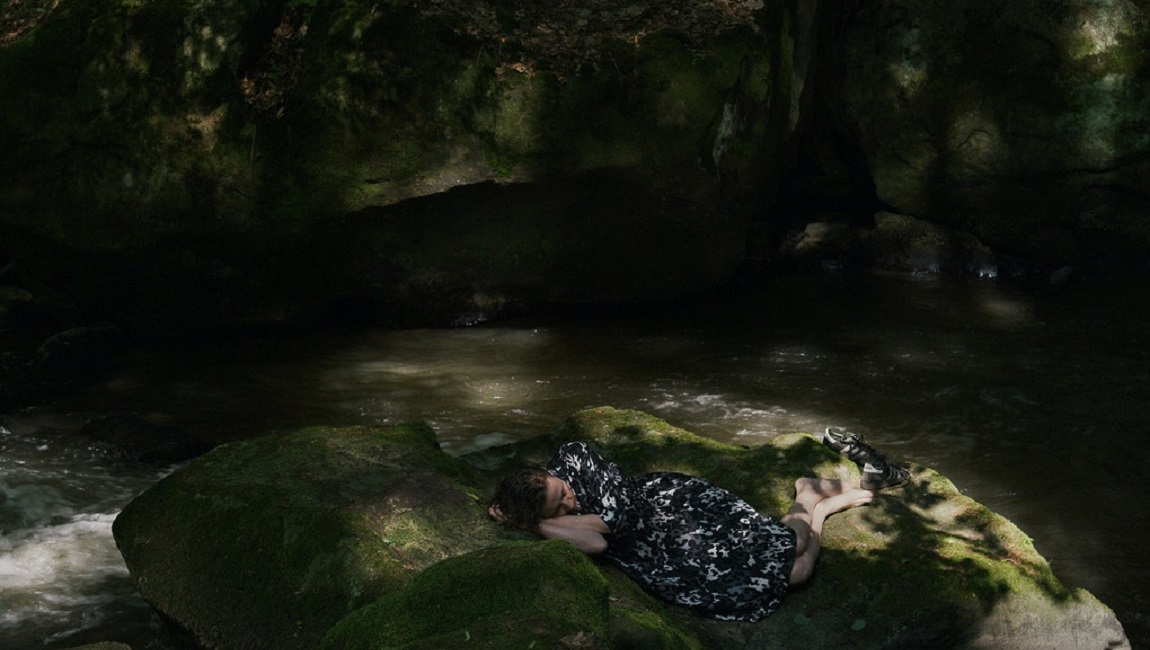If those films inextricably linked to childhood experience — those movies, in Serge Daney’s words, “that watched us grow up and saw us… already entangled in the snare of our history” — are about the trouble with being born, Angela Schanelec’s I Was at Home, But… expresses the particular anguish of being responsible for another’s birth. For Astrid (Maren Eggert), a middle-aged widow and mother of two, the question of parenthood resurfaces painfully when her adolescent son returns home only after a week’s disappearance. For a young couple (Franz Rogowski, Lilith Stangenberg), the question has yet to be answered, though it’s considered in so many sleepless, blue-hour reveries. No staid existential rumination, however, Schanelec’s eighth feature is, per the David Bowie cover that features in one key scene, an invitation to dance — not to forget that governing question, but to sublimate it into movement, as if to make one’s body feel what one would ask of it. Incorporating fable-like bookends and daring elliptical leaps, scenes of schoolchildren rehearsing Hamlet and an acute attention to matters of hearth and home, the film’s elaborate choreography might be traced to the works of Robert Bresson, Maurice Pialat, and Yasujirō Ozu. But far from being beholden to these stylistic forebears, I Was at Home, But… is more like a radical rereading of them. If we think of our encounters with these directors as akin to a child’s learning of a first language, then Schanelec’s distinctive découpage reads as poetry — an adult’s reception of that same language, a second inheritance, calling for relearning and rebirth. The film’s radiant penultimate scene, which charts passage to a green island entirely removed from the confines of contemporary urban life, presents us with a mother’s slumber and her children’s tentative steps into the world. Here, rest does not come amid a childlike assurance of being looked after, but when, perchance to dream, we imagine ourselves unguarded, unwatched; when we accept not just that the world can move on without us, but that it must. Maybe then, we can truly call it home.
Published as part of Top 25 Films of 2020 — 25-11.







